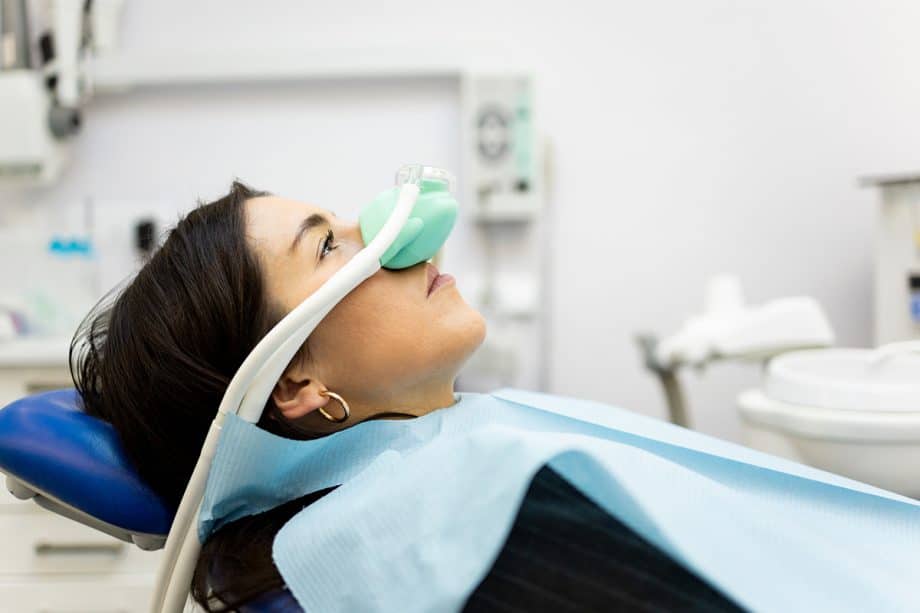As parents, we naturally worry about any medical procedure involving our little ones, especially when it comes to sedation during dental treatments. At Dream Smiles Pediatric Dentistry of Gaithersburg, we understand these concerns entirely. Many parents ask us about the safety of nitrous oxide, commonly known as laughing gas, for their toddlers during dental procedures.
Nitrous oxide has been used safely in pediatric dentistry for decades. When administered by trained pediatric dental professionals, it provides an excellent option for helping young children feel comfortable during dental treatments. We want to address your concerns and provide you with comprehensive information about this gentle form of sedation dentistry so you can make informed decisions about your toddler's dental care.
Understanding Nitrous Oxide and How It Works
Nitrous oxide represents one of the mildest and most widely used forms of sedation in pediatric dentistry. When we administer laughing gas to toddlers, we place a small, comfortable mask over their nose that delivers a carefully controlled mixture of nitrous oxide and oxygen. The effects begin within minutes, creating a sense of relaxation and mild euphoria that helps children feel calm during their dental procedure.
What makes nitrous oxide particularly suitable for toddlers is its rapid onset and equally quick recovery time. Unlike other forms of sedation, the effects wear off almost immediately once we remove the mask, allowing your child to return to normal activities without lingering drowsiness or confusion. Many children describe the experience as feeling "floaty" or "giggly," which explains why we call it laughing gas.
Safety Profile and Medical Supervision
The safety record of nitrous oxide in pediatric dentistry spans over 150 years of use, making it one of the most thoroughly studied sedation methods available. We carefully monitor every child throughout their procedure, checking vital signs and ensuring they remain comfortable and responsive. Our pediatric dentists receive specialized training in sedation techniques and maintain current certifications in pediatric advanced life support.
Before administering nitrous oxide, we conduct a thorough medical history review to identify any potential contraindications. Children with certain respiratory conditions, recent upper respiratory infections, or specific developmental concerns may not be suitable candidates for nitrous oxide sedation. We always discuss these factors with parents during the consultation process to ensure the safest possible treatment approach for each child.
Benefits for Toddlers During Dental Procedures
Toddlers often experience heightened anxiety during dental visits due to unfamiliar sounds, sensations, and environments. Nitrous oxide helps bridge this gap by creating a sense of calm that allows us to provide necessary dental care while maintaining your child's comfort. The mild analgesic properties of laughing gas can also reduce discomfort during procedures, making the overall experience more pleasant for young patients.
Key Benefits Include:
- Rapid onset and quick recovery
- Maintains consciousness and responsiveness
- Reduces anxiety and fear
- Provides mild pain relief
- Allows for better cooperation during treatment
- No lingering effects after the procedure
Many parents find that their toddlers who receive nitrous oxide develop more positive associations with dental care, leading to better long-term oral health outcomes and reduced dental anxiety as they grow older.
Potential Risks and When to Consider Alternatives
While nitrous oxide maintains an excellent safety profile, we want parents to understand that potential side effects occur in less than 0.5% of patients. Some children may experience mild nausea, dizziness, or headaches during or immediately after treatment. We minimize these risks through careful monitoring and by adjusting the concentration of nitrous oxide as needed throughout the procedure.
Certain medical conditions may make nitrous oxide unsuitable for some toddlers. Children with severe nasal congestion, claustrophobia related to the mask, or specific respiratory conditions may benefit from alternative approaches. We constantly evaluate each child individually and discuss all available options with parents, including other forms of sedation or behavior management techniques that might better suit their child's needs.
Making the Right Choice for Your Toddler's Dental Care
Deciding whether nitrous oxide is appropriate for your toddler requires careful consideration of their individual temperament, medical history, and the complexity of their dental needs. We encourage parents to discuss their concerns openly with our team so we can develop a personalized treatment plan that prioritizes both safety and comfort. Many families find that nitrous oxide provides the perfect balance of relaxation and safety for routine dental procedures.
Remember that every child responds differently to dental environments, and what works well for one toddler may not be the best approach for another. We work closely with families to ensure that each child receives the most appropriate care for their unique situation, always keeping safety as our primary concern while striving to create positive dental experiences that will benefit them throughout their lives.
Frequently Asked Questions About Sedation Dentistry
Can nitrous oxide be used for very young toddlers under age 2?
We typically recommend nitrous oxide for children who can cooperate with wearing the nasal mask, which usually occurs around age 2-3 years. Very young toddlers may not understand instructions about breathing through their nose or may resist the mask, making other behavior management techniques more appropriate. We evaluate each child's developmental readiness and level of cooperation before recommending nitrous oxide sedation.
How long do the effects of laughing gas last after a dental procedure?
The effects of nitrous oxide wear off within 3-5 minutes after we remove the mask and administer pure oxygen. Your toddler will return to their normal state quickly, without any lingering drowsiness or impairment. We typically have children breathe pure oxygen for a few minutes at the end of treatment to ensure complete recovery before they leave our office.
We are Dream Smiles Pediatric Dentistry of Gaithersburg, dedicated to providing comprehensive dental care for infants, children, and teenagers in a warm, welcoming environment. Our experienced pediatric dentists combine expertise with compassion to ensure every child receives the highest quality dental care. If you have questions about sedation options for your child, please reach out to us to schedule a consultation.

